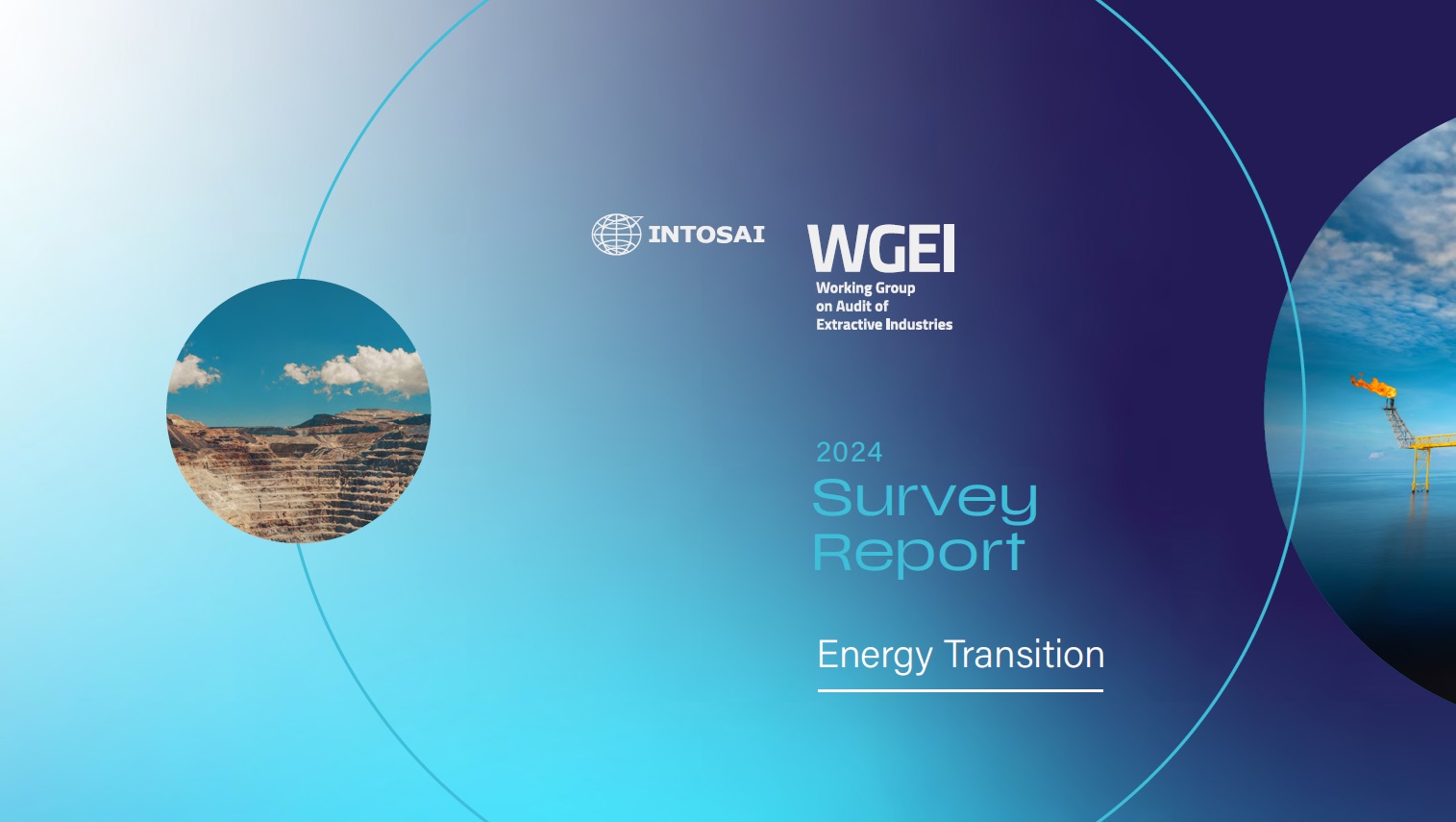WGEI 2024 Survey Report on Energy Transition
The 2024 WGEI Energy Transition Survey offers a comprehensive examination of how Supreme Audit Institutions (SAIs) within the INTOSAI community are approaching the energy transition, a critical global challenge. This survey, the first of its kind within the WGEI, garnered responses from 25 of the 46 member institutions, resulting in a 54% response rate. It sheds light on the readiness, challenges, and opportunities SAIs face in auditing the energy transition within extractive industries, providing a valuable benchmark for future efforts.
Global and Regional Collaborations
The survey reveals significant potential for enhanced global and regional cooperation among SAIs. With 72% of respondents expressing expectations for deeper collaborations, the survey highlights the importance of joint audits, knowledge exchange, and the development of common guidelines. However, while 28% of SAIs have conducted coordinated or joint audits on energy transition topics, a broader push is necessary to maximize the benefits of shared expertise and resources.
Funding and Partnerships
Despite the critical nature of the energy transition, only 20% of SAIs have established partnerships with international organizations like the World Bank, UNODC, and INTOSAI Development Initiative (IDI). Furthermore, only 16% have secured external funding or technical cooperation to support their activities. This underscores the need for expanding strategic partnerships and funding avenues, which are crucial for building the capacity and effectiveness of SAIs in this domain.
Integrating the Energy Transition into SAI Plans
Integration of energy transition strategies into the long-term plans of SAIs remains work in progress. Only 24% of SAIs reported having a dedicated strategy or action plan for addressing the challenges and opportunities related to the energy transition over the next 5-10 years. This indicates a significant opportunity for SAIs to develop more structured approaches to incorporate energy transition audits into their strategic objectives.
Working Methods and Other Choices
SAIs exhibit a range of approaches to improving their audit capabilities in the context of the energy transition. A total of 68% of respondents have undertaken initiatives to enhance their systems and procedures, including the adoption of new software, big data analytics, and updated guidelines. However, only a minority (32%) have consolidated methodologies for monitoring and evaluating the progress of energy transition policies, highlighting an area for further development.
Successful Experiences, Recommendations, and Suggestions
The survey collected valuable insights from SAIs that have successfully navigated the complexities of the energy transition. Around 44% of respondents shared case studies and successful experiences, offering practical examples that can inspire and guide other SAIs. Additionally, 52% of SAIs provided key recommendations for improving energy transition audit practices, emphasizing the need for capacity building, the development of audit guidelines, and enhanced collaboration.
Conclusion
The 2024 WGEI Energy Transition Survey provides a critical assessment of the current state of energy transition audits within the INTOSAI community. While challenges such as a lack of expertise and limited strategic planning persist, the opportunities for collaboration, innovation, and enhanced audit practices are significant. By leveraging these opportunities, SAIs can play a pivotal role in ensuring sustainable and inclusive energy governance globally, contributing to the successful realization of energy transition goals.






